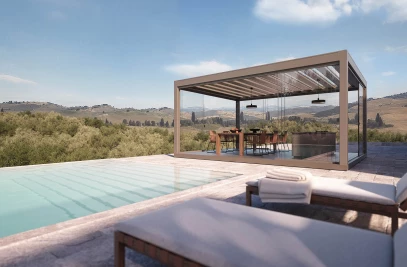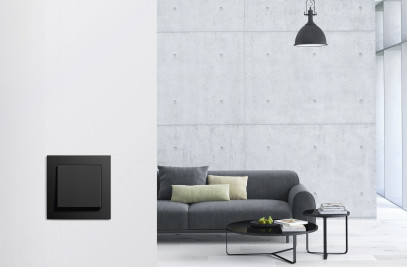On the Paris Saclay campus Renzo Piano Building Workshop arranged a string of approximately twenty buildings around a central garden. Two buildings are offset towards the center to form the entrance to the university campus block. The 63,000 square meter building welcomes 3000 students.

Renzo Piano Building Workshop designed the building with a holistic approach in which each element, each detail, each typology is part of a whole. A modular system was implemented where many of the parts are repeated over the different buildings.

Design choices are based on the idea that structural appearance is secondary to functionality. The structure is made up out of large 16 meter wide gantries that allow for a column-free flexible floorplan for the classrooms, offices and laboratories. The structure is kept low-key and is fitted with highly technical functions required by the program and climate, like thermal durability, natural ventilation, outdoor solar panels, and the storage of rainwater.

The deliberately compact bioclimatic volumes consume three times less energy than a conventional building.

The architects translated the pedagogy of the Ecole Normale Supérieure to shape the conditions where the interaction between the teaching areas and the laboratories engages in a continuous exchange, into transparent walls, mezzanines and the close proximity of the spaces. The design aims to open minds towards cross pollination between the different disciplines of basic sciences, engineering sciences, and human and social sciences.

The facade is divided into two parts. The ground floor is finished with large steel frames with extra clear glass to achieve the desired transparency for major traffic axes. The upper floors are made up out of modular elements that are repeated in every building.

At the southern entrance side, the more public functions are placed like the 1000-seat restaurant, cafeteria, reception, conference center and research laboratories. The entirely transparent south facade gives an insight into the daily life of the school.

In the middle the architects placed the entrance building, slightly offset towards the center, with the reception, a 500-seat amphitheater, auditorium and boardroom.

The northern side with teaching and research facilities is organized by the 200-meters long, 15-meters high, glazed indoor street named the Science Gallery.




































